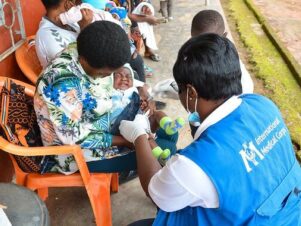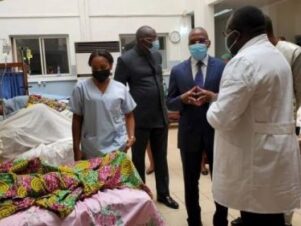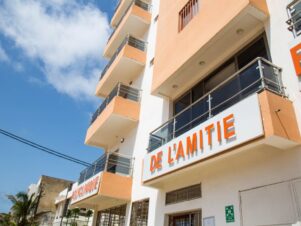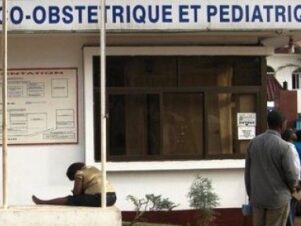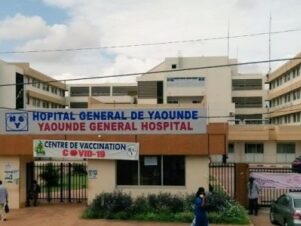Whether you’re dealing with a small illness or a medical emergency, seeking medical help in Cameroon comes with unique challenges. The healthcare system here can vary widely—what’s available in big cities may be very different from what you find in rural areas. Being prepared isn’t just a smart move—it can save you time, money, and even lives. This article will guide you with ten important things you should know before seeking medical help in Cameroon. By understanding how the system works, you’ll make better decisions and feel more confident when facing healthcare choices in this country.

Public vs. Private Hospitals: Know the Difference
When you’re seeking medical help in Cameroon, knowing the difference between public and private hospitals matters a lot. Public hospitals are funded by the government and offer more affordable care to many people—but they often struggle with crowded waiting rooms, outdated equipment, and long delays, especially in larger cities and rural areas. These hospitals can be your go-to for everyday issues, but if you're in an emergency or need specialized treatment, the experience might fall short.
On the other hand, private clinics and hospitals charge more, but they usually give faster, smoother service and often have better equipment and more comfortable settings. Many expats and people who can afford it prefer private care for serious illnesses or fast results. So, weigh what matters most to you—cost or speed and comfort—before choosing where to go.

Also read about Private vs Public Healthcare in Cameroon
Payment Is Often Out of Pocket
In Cameroon, when you're seeking medical help, chances are you’ll pay for most services yourself—out of pocket. Government funding is limited, and only a small fraction of people hold any form of health insurance—around 2%—so most medical bills come directly from your own pocket. This means you often need to pay upfront, even before treatment begins.
Before heading to a clinic or hospital, check what payment methods they accept. Some places may take mobile money or cards, but many still require cash. To avoid delays or surprises, prepare in advance—bring enough money, ask about fees ahead of time, and confirm payment options before your visit.
Bring Your Own Medical Records
When you’re seeking medical help in Cameroon, don’t assume hospitals have reliable digital systems to share your history. While there are new efforts pushing for e-health and electronic medical records, full coverage is far from universal—especially outside major cities. That means you should bring your own medical records—recent lab results, prescriptions, X-rays, or notes from past visits. Having this information on hand helps doctors treat you more quickly and accurately, reducing delays, repeated tests, and miscommunications. Keeping your own copy means better care when systems can’t talk to each other.
Medical Insurance: What It Covers and What It Doesn’t

In Cameroon, you might have some coverage through the CNPS (National Social Insurance Fund), but don’t expect it to work like full health insurance. CNPS mainly offers social protections for salaries, maternity, work accidents, and related medical bills—but only for formal sector workers and mostly just for specific cases. Many Cameroonians, especially in the informal sector, are not covered, and CNPS does not handle regular medical visits, medicines, or surgeries.
To truly protect yourself when seeking medical help, private insurance is your best option. Many employers offer group plans that cover consultations, lab tests, hospitalization, and medications—but levels of coverage vary widely. For example, with surgery you may still pay out of pocket for fees or drugs not covered; for lab work or medications, you might only get partial reimbursement.
Bottom line: always contact the hospital or clinic ahead of your visit to confirm which costs your insurance will—or won’t—cover.
Also read about How to Use CNPS Health Insurance in Cameroon
Language Can Be a Barrier
While French and English are the two official languages of Cameroon, fluency isn’t universal—only about 11.6% of people are literate in both, and nearly 29% are literate in neither. When seeking medical help in Cameroon, you might find doctors speaking French or English, but support staff may not. This can lead to confusion, especially during emergencies or detailed conversations.
To avoid miscommunication, consider carrying someone who can translate, or learn a few medical phrases in French, English, or Pidgin. It can make a big difference in how quickly and accurately you receive care.

Not All Facilities Are Equipped for Emergencies
When you’re seeking medical help in Cameroon, be aware that not all clinics or health centers can handle serious trauma or perform surgeries. Only larger, better-equipped facilities—like regional or teaching hospitals—are prepared for emergencies with proper operating rooms and emergency wards. For example, the Central Hospital of Yaoundé is one of the few with a busy trauma centre and 24/7 emergency capability. If you face a serious health problem, it’s smarter to go directly to such a facility. Before your visit, call the hospital and ask if they have emergency equipment or an ambulance ready. This simple step can make a big difference in saving precious time—and possibly your life.
Pharmacies vs. Hospital Dispensaries
Some public health facilities in Cameroon don’t carry a full range of medicines. One study found that government-run clinics and hospitals had only about 50% availability of essential medicines. That means you may need to buy prescribed medicines at external pharmacies—even informal vendors, which often have better stock. Always make sure the drugs you purchase are authentic and stored properly. By verifying packaging, expiration dates, and buying from trusted sources, you protect your health and avoid risky or counterfeit medicines. Being prepared means knowing where to get your medications—and being sure they’re safe.

Don’t Expect Fast Service Everywhere
Seeking medical help in Cameroon often requires plenty of patience—especially in public hospitals. Long queues and lengthy consults are common, and even scheduled appointments may not be honored on time. For example, at the Yaoundé Central Hospital, patients have reported waiting over 30 minutes just to begin the consultation process. To avoid unnecessary delays, either plan to arrive early—well before your appointment—or consider using private clinics where service is usually quicker. These small steps help you get seen faster and with less stress.
Ask Questions and Be Your Own Advocate
When you’re seeking medical help in Cameroon, don’t be shy—ask questions. Ask about your diagnosis, what treatments you need, how much it will cost, and what the next steps are. Too often, patients receive limited information unless they speak up themselves. By being proactive, you take control, help the medical staff understand your situation, and ensure you get the correct care. Being your own advocate not only helps you feel more confident but also leads to faster, better treatment. Remember: you deserve to understand what’s happening and why.

Be Smart When Seeking Medical Help in Cameroon
You’ve now learned the key things to know before seeking medical help in Cameroon—from knowing where to go and how to pay, to bringing your own records and speaking up. The bottom line is that being prepared makes a real difference. If you know your options, understand the challenges, and ask the right questions, you’re already ahead.
Healthcare in Cameroon can be unpredictable—but that doesn’t mean it’s ineffective. Many people receive excellent care when they plan ahead, choose the right facility, and stay actively involved in their own health journey. Whether you're visiting a big hospital in Yaoundé or a smaller clinic in a rural area, preparation and awareness help ensure better treatment and peace of mind.
Now that you know what to expect, seeking medical help in Cameroon will be a more confident and informed experience. You’re ready.

FAQ: Seeking Medical Help in Cameroon
Do hospitals accept mobile money payments?
Some hospitals and clinics like CEMRIO Medical Center are starting to offer mobile payment options like Orange Money or MTN Mobile Money. But this is still limited. It’s safest to bring cash or check in advance whether they accept mobile money before your visit.
What should I bring to the hospital?
Bring your ID, any lab results, prescriptions, X-rays, and notes from prior visits. These help doctors diagnose you more accurately and avoid repeating tests.
How do I know if a doctor is licensed?
Only doctors registered with the Ordre National des Médecins du Cameroun (ONMC) are legally allowed to practice. If in doubt, you can ask the facility to show the doctor’s registration or check the ONMC’s records.
Are medical services available 24/7?
Some larger and newer facilities offer round‑the‑clock services—for instance, the Central Hospital of Yaoundé operates 24/7 and handles trauma and emergencies. Others, like outpatient departments at some clinics (e.g. Etoug‑Ebé Baptist Hospital in Yaoundé), also serve patients day and night. Always call ahead to confirm hours and emergency options.

